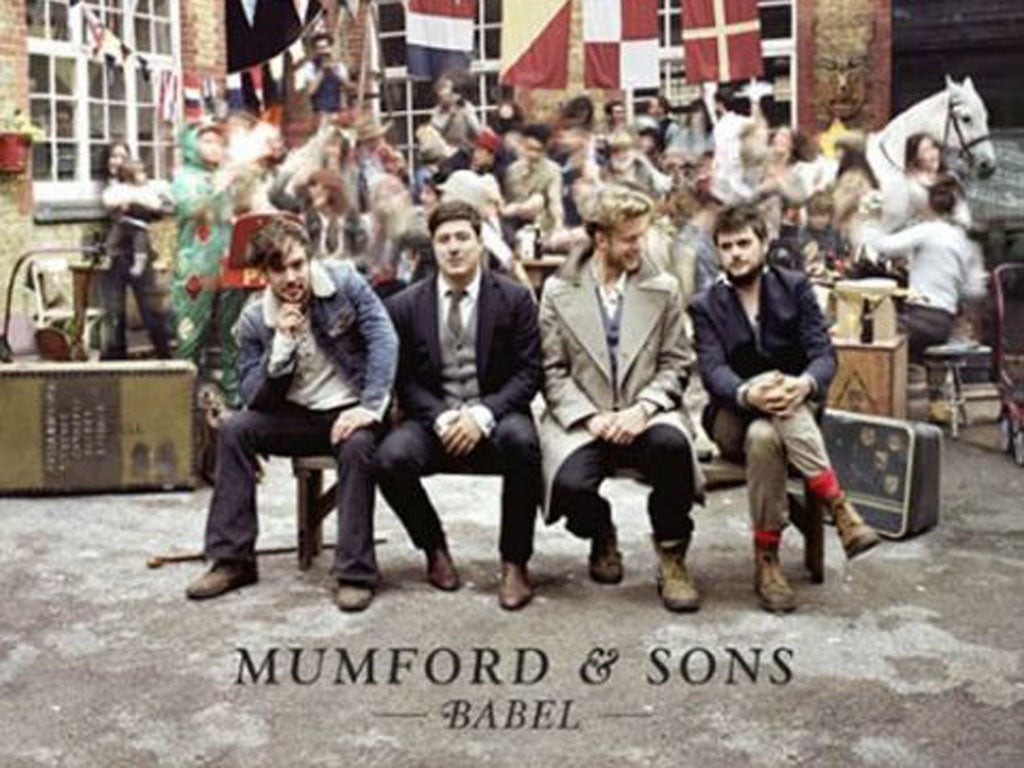Your support helps us to tell the story
From reproductive rights to climate change to Big Tech, The Independent is on the ground when the story is developing. Whether it's investigating the financials of Elon Musk's pro-Trump PAC or producing our latest documentary, 'The A Word', which shines a light on the American women fighting for reproductive rights, we know how important it is to parse out the facts from the messaging.
At such a critical moment in US history, we need reporters on the ground. Your donation allows us to keep sending journalists to speak to both sides of the story.
The Independent is trusted by Americans across the entire political spectrum. And unlike many other quality news outlets, we choose not to lock Americans out of our reporting and analysis with paywalls. We believe quality journalism should be available to everyone, paid for by those who can afford it.
Your support makes all the difference.Babel bowls along with the ebullient energy one expects of Mumford & Sons, like a cider-soused hoedown at an after-hours lock-in. But while this works to the advantage of their more rousing sentiments, it tends to iron out the subtler creases in some of the songs.
The title-track, a mandolin stomp-thrash, opens proceedings with Marcus Mumford claiming "I ain't ever lived a year better spent in love". This seems to serve as a conceptual thread for the album as a whole, as successive songs track the turbulent progress of his heart, from the enthusiastic banjo charge of "Whispers in the Dark" to the wracked torment of "Holland Road".
At times, the wallowing self-absorption becomes barely bearable: "Ghosts That We Know" is a draggy compromise between banjo and strings, bogged down in self-pity; and "Lovers' Eyes", though more generously reflective, only slightly less arduous. But "I Will Wait" finds a much more effective balance, its quieter moments picked out in guitar, mandolin and dulcimer, with tarnished brass adding a bruised nobility.
As a writer, Marcus Mumford's chief quality is the directness of his sentiments: so though he may lean towards archaic syntax and excessive pathos, couplets like "So watch the world tear us apart/A stoic mind and a bleeding heart" hit home with a pungent charge. But the general absence of metaphor and metonymy elsewhere leaves the album's best line, "A brush with the devil can clear your mind, strengthen your spine" standing out all the more obtrusively.
Babel is by no means a bad album, and fans will surely exult in the rolling hootenanny charm of tracks like "Hopeless Wanderer" and "Babel". The longer term, however, holds lurking problems in the narrowness of the subject-matter involved here. Folk music traditionally serves as the conduit for spiky discourse about social and political matters, as well as matters of the heart; but with romance so dominant on this album, it drifts inexorably towards a mainstream pop current of blander concerns.

Join our commenting forum
Join thought-provoking conversations, follow other Independent readers and see their replies
Comments